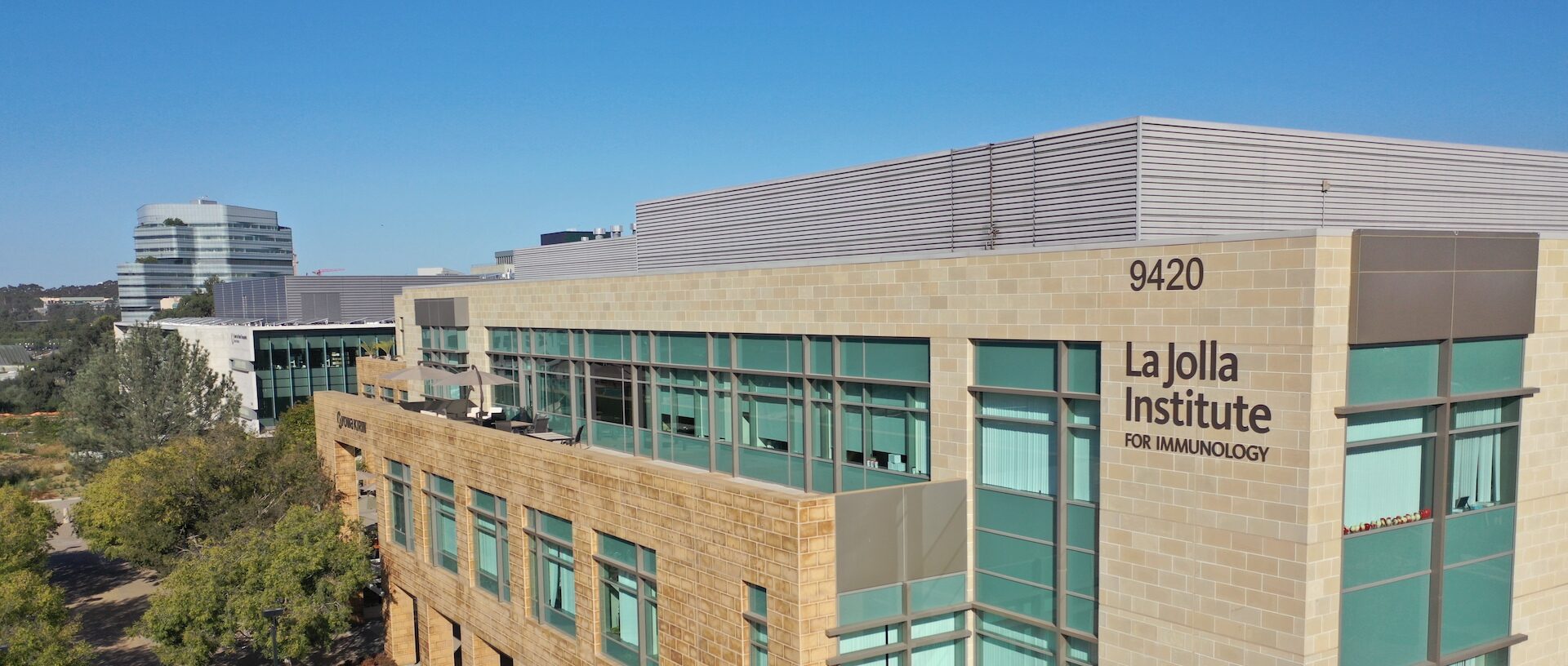LA JOLLA, CA—Stephen Schoenberger, Ph.D., a professor at the La Jolla Institute for Immunology, and Ezra Cohen, M.D., a professor of medicine at the University of California, San Diego School of Medicine Moores Cancer Center, have been awarded a Clinic and Laboratory Integration Program (CLIP) Grant by the Cancer Research Institute (CRI), a non-profit organization dedicated to furthering the development of effective immune system-based cancer therapies. Schoenberger and Cohen’s immunotherapy research is being conducted through a program initiated by a gift from Fernanda and Ralph Whitworth.
“The results of these studies will provide new insights and opportunities for the treatment of head and neck cancer and bring the possibility of adaptive cancer immunotherapy and personalized cancer vaccines a step closer to clinical reality,” says Cohen, associate director for translational science at the Moores Cancer Center at UC San Diego Health and an internationally recognized expert for novel cancer therapies.
Cancer immunotherapy stimulates the body’s immune system to help fight the cancer instead of directly targeting the tumors. CLIP grants, which are specifically designed to bridge the gap between the laboratory and clinical efforts, support clinically relevant research projects aimed at bringing immune-based therapies to patients sooner.
Schoenberger and Cohen will use the two-year, $200,000 grant to study whether the immune system of patients suffering from head and neck squamous cell carcinoma (HNSCC) contains immune cells capable of launching an immune system attack directed at tumor cells and how to best increase their numbers and efficiency.
Local benefactors Fernanda and Ralph Whitworth initiated this discovery-based cancer immunotherapy program at UC San Diego Moores Cancer Center after Mr. Whitworth’s own cancer diagnosis. The Whitworths have founded a newly formed public charity that will continue to support this program, and others like it, so that all patients can benefit from their gift. The charity, Immunotherapy Foundation or “IF”, is dedicated to supporting the advancement of immunotherapy research for HPV-related head and neck cancer.
As tumors travel down the path of malignant transformation, they accumulate collections of random mutations that result in tumor-specific proteins, also known as tumor-specific antigens, that the immune system can use to distinguish tumor cells from their normal counterparts.
Many tumors, however, evade immune surveillance by shutting down the very cells that try to fight it. They produce molecules that activate immune checkpoints—inhibitory switchboards that are hardwired into the immune system and are crucial to preventing autoimmunity.
Immune checkpoint blockade therapy, which has shown significant clinical benefits for the treatment of melanoma, lung cancer, renal cell carcinoma and bladder cancer, uses antibodies to sidestep the blockade and “take the brakes off” the immune system.
The CRI-supported study will explore the interplay between tumor-specific T cell responses and checkpoint blockade therapy in patients with head and neck squamous cell carcinoma enrolled in two ongoing clinical trials at Moores Cancer Center.
“Largely due to technological advances in next generation sequencing, a patient’s personal set of tumor-specific mutations can now be affordably and quickly characterized,” says Schoenberger. “We can then determine whether the patient’s immune system contains T cells capable of recognizing specific antigens expressed by their own tumors, and whether these increase in number or vary in specificity as a result of checkpoint blockade therapy.”
The ultimate goal is to be able to understand precisely how immune cells that can recognize and kill tumor cells in an individual arise and can be therapeutically enhanced. With this understanding, future treatments would use highly effective, patient-specific immunotherapy to fight a primary tumor as well as hunt down stray cancer cells before metastases can establish themselves.
“This award supports truly transformative research in cancer immunotherapy,” says Scott M. Lippman, M.D., director of the Moores Cancer Center. “For the first time, we will be able to interrogate individual head and neck cancers for presence of neoantigens that the patient’s own immune system can respond to. This will allow development of personalized immunotherapeutic approaches based on the concept of letting a patient’s own immune system direct us to the best targets for eliminating their cancer. We believe this will be a substantial leap forward in immuno-oncology and illustrates the strong and productive translational research connection forged between LIAI and UCSD.”
ABOUT LA JOLLA INSTITUTE
La Jolla Institute for Immunology is dedicated to understanding the intricacies and power of the immune system so that we may apply that knowledge to promote human health and prevent a wide range of diseases. Since its founding in 1988 as an independent, nonprofit research organization, the Institute has made numerous advances leading towards its goal: life without disease.
MOORES CANCER CANTER AT UC SAN DIEGO HEALTH
Moores Cancer Center at UC San Diego is home to nearly 350 medical and radiation oncologists, cancer surgeons, and researchers. It is one of only 45 National Cancer Institute-designated comprehensive cancer centers in the country, a rare honor distinguishing exceptionally high achievement in research, clinical care, education and community outreach and partnerships. For more information, visit cancer.ucsd.edu.


